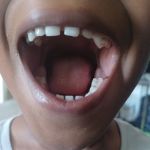What to Do When You Have a Tooth Emergency on Vacation
- 1. Understanding Tooth Emergencies
- 2. Common Tooth Issues You Might Face
- 3. How to Handle a Tooth Emergency While on Vacation
- 4. Finding Urgent Dental Care While Traveling
- 5. Preventive Tips for Avoiding Dental Emergencies
1. Understanding Tooth Emergencies
A tooth emergency on vacation can range from a sudden toothache to more severe issues like a broken tooth or lost filling. While no one ever plans to deal with dental problems while traveling, understanding what qualifies as an emergency and how to handle it is key to staying calm and getting the right care. Tooth emergencies can happen at any time, and when you’re away from home, the unfamiliar environment can make things feel even more stressful. Knowing how to respond can make a world of difference in managing the situation effectively.
2. Common Tooth Issues You Might Face
Some of the most common dental problems that can occur while traveling include:
- Toothaches: Often caused by cavities or gum infections, toothaches can suddenly flare up and cause discomfort during your trip.
- Chipped or Broken Teeth: Accidents or biting into hard food can result in broken teeth, leading to both pain and aesthetic concerns.
- Loose Fillings or Crowns: A crown or filling can come loose while eating, causing sensitivity or even pain.
- Abscesses: Abscesses are infections that can develop around the root of a tooth and may cause swelling, severe pain, and fever.
Understanding these issues will help you determine the severity of the situation and take the appropriate steps for treatment.
3. How to Handle a Tooth Emergency While on Vacation
If you experience a dental emergency while on vacation, the first thing to do is remain calm. Here are a few steps you can follow to handle the situation:
- Contact a local dentist: Search online or ask your hotel concierge for recommendations on local dentists who offer emergency services. Many dental offices have walk-in appointments or can accommodate urgent care requests.
- Temporary relief: For minor toothaches, you can use over-the-counter pain relief such as ibuprofen or aspirin to reduce discomfort until you can see a dentist. A cold compress can help with swelling for issues like a broken tooth or abscess.
- Avoid aggravating the problem: If you have a cracked or broken tooth, avoid chewing on that side of your mouth and stick to soft foods. If a filling comes loose, try to avoid sticky foods that might worsen the problem.
- Seek immediate care for severe issues: If you are experiencing a severe tooth infection, a swollen face, or significant pain, don’t delay in seeking medical attention. Infections can spread quickly and require professional treatment.
4. Finding Urgent Dental Care While Traveling
Finding the right dental care when you’re far from home can feel challenging, but there are several ways to locate urgent dental services:
- Hotel Concierge: Many hotels offer concierge services that can help you find a dentist or direct you to nearby medical centers that can assist with dental emergencies.
- Online Search: Use platforms like Google or Yelp to search for dentists in the area with emergency services. Look for reviews to gauge their reliability.
- International Travel Insurance: If you have travel insurance, check to see if it covers emergency dental care. Some policies will help cover the cost of treatment and assist in finding a local provider.
It’s important to have a plan and contact a local dentist as soon as you can. Time is of the essence when dealing with dental emergencies to prevent further complications.
5. Preventive Tips for Avoiding Dental Emergencies
The best way to deal with a tooth emergency on vacation is to avoid one in the first place. Here are a few tips to help prevent dental problems while traveling:
- Maintain good oral hygiene: Brush and floss regularly, especially after meals, to keep your teeth healthy. Carry a travel toothbrush and toothpaste with you for convenience.
- Avoid hard foods: While on vacation, try not to chew on hard objects or foods that can damage your teeth, such as ice or hard candies.
- Visit your dentist before your trip: If you’re planning an extended vacation, schedule a check-up before you go to ensure there are no underlying dental issues.
- Keep dental essentials with you: Pack items like floss, pain relievers, and a dental emergency kit to have on hand if issues arise.







 Worcester Dental Arts5.0 (579 review)
Worcester Dental Arts5.0 (579 review) South Bay Children's Health Center5.0 (106 review)
South Bay Children's Health Center5.0 (106 review) Custom Endodontics4.0 (67 review)
Custom Endodontics4.0 (67 review) Dentistry NW4.0 (245 review)
Dentistry NW4.0 (245 review) CAMcare Health Corporation- Clementon4.0 (341 review)
CAMcare Health Corporation- Clementon4.0 (341 review) Corbin Dental at Oyster Bay4.0 (189 review)
Corbin Dental at Oyster Bay4.0 (189 review) The Importance of Oral Health Education During Pregnancy for a Healthy Pregnancy
The Importance of Oral Health Education During Pregnancy for a Healthy Pregnancy Best Tips for Brushing Your Teeth Properly for Healthy Gums: Essential Techniques for Oral Health
Best Tips for Brushing Your Teeth Properly for Healthy Gums: Essential Techniques for Oral Health Why Skipping Dental Checkups Can Lead to Bigger Oral Health Problems
Why Skipping Dental Checkups Can Lead to Bigger Oral Health Problems Advantages of Porcelain Dental Restorations
Advantages of Porcelain Dental Restorations How Can Diabetes Cause Tooth and Gum Problems? Preventing and Managing Oral Health Issues
How Can Diabetes Cause Tooth and Gum Problems? Preventing and Managing Oral Health Issues Healthy Habits for Promoting Good Oral Health and Hygiene: Tips for a Healthy Smile
Healthy Habits for Promoting Good Oral Health and Hygiene: Tips for a Healthy Smile